#guinevere stewart
Explore tagged Tumblr posts
Text




#by deer#christian moran#guinevere stewart#caroline monroe#mars dickinson#beatrice fisher#nicholas hoult#nicholas brandt#elle fanning#matthew armstrong#lenore adler#natalie dormer#jai courtney#sam claflin#lily collins#astrid berges frisbey#liam hemsworth#roleplaying
10 notes
·
View notes
Text
Mary Stewart's Merlin Trilogy - Complete Series in one Book for Sale
Book here

The complete trilogy of Mary Stewart's Merlin Book Series! Book is in relatively good condition; there are no markings or writing inside the books. No pages torn or creased from dog ears. The dust jacket may have some very minor scuffs around the edges, but no tears. The hardback cover has a mark near where "Morrow" is, and an indent as pictured. Any shipping overages will be refunded If you have any questions, please feel to reach out to me and ask; I'll get back to you as quickly as I can. Thank you
Book here

Book
#mary stewart#fiction#fantasy books#books and reading#selling books#books#bookworm#booklr#bookblr#book club#selling#sale#bookstagram#books & libraries#fantasy literature#fantasy character#fantasy#medieval fantasy#mythical creatures#merlin emrys#bbc merlin#merlin fandom#uther pendragon#bbc merlin fanart#merlin bbc#arthur pendragon#king arthur#guinevere#british authors#vintage books
22 notes
·
View notes
Text

Sir Patrick Stewart in one of his earliest film roles as King Leodegrance in Excalibur (1981). At his side is Cherie Lunghi as Leodegrance's daughter, Guinevere, the future wife of King Arthur.
#Excalibur#King Leodegrance#Sir Patrick Stewart#Guinevere#Cherie Lunghi#King Arthur#Knights of the Round Table#Camelot
87 notes
·
View notes
Text
Ideal Arthur cast based on my favorite live action versions of each character:

Clive Owen as Arthur (King Arthur, 2004)

Angel Coulby as Guinevere (Merlin, 2008)

Eva Green as Morgan (Camelot, 2011)

Franco Nero as Lancelot (Camelot, 1967)

Peter Mooney as Kay (Camelot, 2011)

Eoin Macken as Gwaine (Merlin, 2008)

Joseph Fiennes as Merlin (Camelot, 2011)

Anthony Stewart Head as Uther Pendragon (Merlin, 2008)

Claire Forlani as Igraine (Camelot, 2011)

Katherine Langford as Nimue (Cursed, 2020)
#arthuriana#guinevere#lancelot#merlin#morgan le fay#nimue#clive owen#angel coulby#eva green#franco nero#eoin macken#joseph fiennes#anthony stewart head#claire forlani#katherine langford#james purefoy#bbc merlin#starz camelot#cursed#netflix cursed#camelot musical
18 notes
·
View notes
Text

🗡️ Character specific recs: MORDRED🗡️
Download/video texts are linked beside titles if present. This is just a list of what I think is the best Mordred material out there. Every list is favorite order.
Books (Mordred as main character)
Idylls of the Queen (Phyllis Ann Karr)
The Winter Prince (Elizabeth Wein)
I am Mordred (Nancy Springer)
The Traitor's trilogy (Kenealy)
The Book of Mordred (Vivian Valde)
The Wicked Day (Mary Stewart)
A Camelot Triptych especially the chapter "Mordred Manuscript" (Norris Lacy)
The Road to Avalon (Joan Wolf)
Books (Mordred as secondary character)
The Road to Avalon (Joan Wolf)
The Great Captains (Treece)
Lancelot (Vansittart)
Guinevere trilogy (Persia Wolley)
Guinevere trilogy (Rosalind Miles)
Sword at Sunset (Sutcliff)
Sources (pre-1800 texts downloads)
Annales Cambriae
Morte d'Arthur (Malory)
Vulgate and Post-Vulgate
The History of Scotland (Boece) (book 8)
Movies
Camelot (1967) (here)
Sword of Lancelot (1962) (youtube)
Morte d'Arthur (1984) (here)
Camelot animated musical (1998) (youtube)
Tv shows
The legend of King Arthur (1979) (queer-ragnelle links)
Merlin miniseries (1998) (youtube)
The Mists of Avalon miniseries (2001)
Fate/Apocrypha (2017)
Videogames
The bastard of Camelot (itch io)
Other
Camelot 2023 Broadway revival (youtube)
Camelot musical 2008 (youtube)
Webseries: The campaign for Camelot (youtube)
Album: High noon over Camelot by The Mechanisms (youtube)
Album: The once and future king by Gary Hughes (youtube)
Song: Mordred's Lullaby by Heather Dale (youtube)
Song: War Between Brothers by Heather Dale (youtube)
Song: Crashing Down by Heather Dale (youtube)
Song: Mordred's Song by Blind Guardian (youtube)
Play: Mordred, a tragey by Newbolt (camelot project)
The art used is by Pere Ginard (from La leyenda del rey Arturo y sus caballeros)
74 notes
·
View notes
Text
Showdown 2k25 - Submit Propaganda
Just like last year I want to kick January off with a flat popularity contest, showdown 2k25. (<- I wrote that in December before my laptop packed up, it'll now be after whenever I manage to get my laptop fixed)
Automatically competing - everyone from last year (list), with the following exceptions
Last years winner - Donna Noble
Possibly Rose Tyler as the 2023 winner, but I need to think on it a bit more
I'm going to reassess a few from last year, but it will be a tiny number
Rules for new nominees (tardis wiki list referenced below)
Anyone on the list will automatically be accepted
TV companions MUST be on the list
EU companions not on the list will be considered on a case by case basis. If they meet a reasonable definition of companion I will accept them, basic guideline is has their own tardis wiki article so I can actually check, multiple stories with the Doctor, none of these guidelines are hard rules, if you can justify them to me (and I can follow the argument), I'll let them in
Propaganda is not carrying over from last year, if you want to go to bat for someone, use this same form - (There isn't a lot at the moment so more would be appreciated, you can check the list under the cut for who hasn't got any if you want, but multiple sets for one character is good)
You can use this form to make multiple nominations/give multiple bits of propaganda at once.
I don not currently have an end date when nominations will close
list of (162) competitors, anyone in green has propaganda submitted for them (26)
Classic Who
Barbara Wright
Ian Chesterton
Susan Foreman
Vicki Pallister
Steven Taylor
Katarina
Sara Kingdom
Dodo Chaplet
Ben Jackson
Polly Wright
Jamie McCrimmon (propaganda x2)
Victoria Waterfield
Zoe Heriot
The Brigadier
Sergeant Benton
Liz Shaw
Mike Yates
Jo Grant
Sarah Jane Smith
Harry Sullivan
Leela
K9
Romana I
Romana II
Adric
Nyssa
Tegan Jovanka
Kamelion
Vislor Turlough (x2)
Peri Brown
Sabalom Glitz
Mel Bush
Ace McShane
Chang Lee
Grace Holloway
NuWho
Mickey Smith
Adam Mitchell
Jack Harkness
Martha Jones
Wilfred Mott
River Song
Amy Pond
Rory Williams
Canton Everette Delaware III
Kate Stewart
Clara Oswald
Handles
Missy
Nardole
Grant Gordon
Bill Potts
Graham O'Brien
Ryan Sinclair
Yasmin Khan
Dan Lewis
Karvanista
Inston-Vee Vinder
Rose Noble
Ruby Sunday
Audio
Oliver Harper
Erimem
Iris Wildthyme
Evelyn Smythe
Hex Schofield
Mags
Alex Campbell
Bliss
C'rizz
Cass Fermazzi
Charley Pollard
Helen Sinclair
Liv Chenka
Lucie Miller
Molly O'Sullivan
Narvin
Sheena (The Starship of Theseus)
Tania Bell
Anya Kingdom
Mark Seven
Novels
The Mortimer Family
Serena
Milena
Business Woman (Time on a Vine)
Bernice Summerfield
Cat Broome
Chris Cwej
Roz Forrester
Wolsey the Cat
Anji Kapoor
Claudia Marwood
Compassion
Fitz Kreiner
Hector (All Flesh is Grass)
Marie (Alien Bodies)
Sam Jones
Trix MacMillan
Ikalla
Rosie Taylor
Jack McSpringheel
Peter Summerfield
Ruth Leonidas
Dorothy (The Wonderful Doctor of Oz)
Sibling Different
Cinder
Anna (Good Companions
Badger
Barusa
Guinevere Winchester
Irving Braxiatel
Larna
Patience
Penelope Gate
Zeleekhà
Comics
Duh
Gillian & John Who
Dave Lester
Sharon Davies
Gus Goodman
Maxwell Edison
Shayde
Frobisher
Ly-Chee the Wise
Olla
Chantir
Destrii
Fey Truscott-Sade
Izzy Sinclair
Kroton
Ssard
Josie Day
Cindy Wu
Gabby Gonzalez
Grayla
Jayne Kadett
Majenta Pryce
Rose-the-Cat
Alice Obiefune
Abslom Daak, Dalek Killer
John Jones
ARC
Hattie Munroe
Weeping Angel (Origins)
Child Master (The Then and the Now)
The Squire
Real Life
Alan Turing
Claudia Winkleman
John Lennon
Jules Verne
Mary Shelley
Peter Cushing
Other
Alison Cheney
Shalka!Master
Andy Davidson
Antimony (Death Comes to Time)
Brian the Ood
Dormouse (The Red and the Blue)
Emma (curse of fatal death)
Koschie
Romana (Battle for the Universe)
Splinx
Susan Who
Tom Campbell
53 notes
·
View notes
Text
I think sometimes he would get upset because, well, he Had blood family: his mom, his father, even though he didn't get to grow up with him, he did continue his craft post-show, in my opinion, working with dragons from time to time, especially as magic became less and less real for most people; he would get upset that they do not see enough value in the family he has made, that he had to work to have them all. the knights, gwen, especially arthur: his life's work, his liege. with arthur it is more complicated, I imagine. there's the gay yearning, the wanting to have the specific kind his dedication is acknowledged, if not by arthur, then by scholars, who have dedicated their lives to studying arthur, trying to figure out who merlin was, if he was ever real. when especially sad and full of regret, I do think he would just be happy to have been there for arthur, even though it wasn't good enough. arthur didn't know, so why should they. this is good enough for him, as long as arthur can come back and see how hard he's worked for him. "my whole life was in this boy, every hour of mine was filled with love for him, and I thought about nothing, taking his sincere craving for me as a divine gift." ("the hollow hills" part three, chapter four, translated back by me, because I don't have it in english right now and can't be fucked to look online.)
theres smth abt the entire legend of merlin and king arthur all sitting on one little lad that makes me feel emotions and idk what it is
like he created excalibur and put it in the lake then in the stone and the lady of the lake is his dead gf and literally every single piece of that whole big centuries old legend is all in the secretive traumatic life of this little fucking kid
#Idk#I think maybe he'd laugh about it sometimes but mostly this#it'd be pretty frustrating#rrp#this is very messy but you did ask :)#need to rewatch the show ugh#merlin emrys#arthur pendragon#merlin bbc#the hollow hills#mary stewart#arthurian#mp#guinevere pendragon#merthur#ms merlin series
49 notes
·
View notes
Note
I'm honestly kinda disgusted by the way a lot of authors just seeped their misogyny onto Guinevere to make her so horrible, lol. effectively destroyed a lot of people's view of her and she gets blamed for everything?? people keep shitting on her, saying Lancelot should be shipped with "someone better" and I'm just really annoyed because.. Guinevere is horribly characterized by these weirdos authors 💀. It does not take much to portray her as a complex character while also not making her shitty on purpose because you don't like her for her affair, lol.
I love her so much and it's disappointing how she's been treated :(( which is why I'll never be able to hate Guinevere or her ship with Lancelot
My friend it’s honestly so exhausting at this point. It’s not even limited to writing Guinevere herself as insufferable, but writing other characters behaving worse toward her than they ever were in medlit. Arthur hitting and degrading her when he cheats on her? (Warrior of the West by M. K. Hume) Lancelot using her for political gain and never loving her at all? (Enemy of God by Bernard Cornwell) Owain blocking her passage as she flees danger? (Legend in Autumn by Persia Woolley) Agravaine threatening to rape her? (The Road to Avalon by Joan Wolf) Gawain threatening to rape her? (Guinevere by Lavinia Collins) WHO are these characters bro you got me fucked up!!! The subtext here is that the authors hate Guinevere (read: women) so much they’re willing to warp everyone around her to treat her like garbage!!!
“Guinevere is bad because she has sex outside marriage.” Yeah so does Arthur. He fucked his own sister. In the dark. Leading her to believe he was her husband. So there’s Mordred, but there’s also Loholt and Arthur the Less etc. Arthur has many bastards from his extramarital affairs. (Vulgate and Post-Vulgate) Yet he isn’t canceled. Hm. Wonder what the difference could be? Let’s investigate. Seems authors treat Morgause and Morgan similarly to Guinevere. Gee, what is the common denominator here? Meanwhile in medlit, Morgause didn’t commit any crimes—she didn’t rape Arthur to have Mordred, she never neglected her children, she never cheated on Lot, and she didn’t prey on young men, she had ONE consistent lover who was younger than her AFTER her husband died. And she was murdered for it. (Post-Vulgate) Yet every other author writes her as a rapist (The Once and Future King by T. H. White), child grooming (The Wicked Day by Mary Stewart), pedophile (The Book of Gaheris by Kari Sperring), trying to put one of her sons on the throne (many examples). Now, Morgan is evil. But not for lewdness, for trying to murder people. In literally every source. Hello. It’s very simple. These authors are ridiculous. They care more about highlighting their opinion that fictional women having sex is BAD than writing a good story. When there are plenty of actually bad things happening in medlit they could condemn instead. You know, like the misogyny? Burning Guinevere at the stake??? You couldn’t make this up. It’s the utter disdain for the material for me. Assuming these dumbasses are even reading the material. Write something else where I can’t see it. (To be clear, I don’t even hate all the books I listed as examples, but they are unfortunately examples.)
Thankfully I haven’t encountered the blogger discourse regarding this. At least not lately. My advice to anyone who sees people shitting on something you like is to block them. Just do it. Fuck that noise. It’s not worth it.
Also I have to laugh at ship discourse about Guinevere/Lancelot. Of all pairs! It’s so unserious. They’re not some random comphet duo from the newest tumblr trending fandom. They’re mythological characters from a medieval literary tradition. Lancelot was created for her. In the 12th century. That was 900 years ago. It feels juvenile to reduce them to ship discourse. Especially because the story is fluid, it can be reshaped to fit the author’s narrative. So if Guinevere sucks, it’s because they made her that way. This is the epitome of making up a girl to be mad at.
“Oh but in Knight of the Cart—” Shh stop talking. If you’re pulling out KotC like some “gotcha” about Guinevere’s treatment of Lancelot, then you’re lost, buddy. You may be seeking entertainment in the wrong place! Guinevere and Lancelot aren’t real. Nobody was “abused” because they’re characters, narrative tools, to tell a story. Guinevere is flawed. Nobody ever said she wasn’t. If that’s too much complexity for you then I don’t know what else there is to say.
Honestly? Nobody is obligated to like Guinevere. I think it’s stupid to dislike her but the real take away is—if you dislike Guinevere so much, hate her even, why the are you writing so poorly about her? She’s as old a character as Arthur himself. Show some fucking respect or get out.
Anyway I’m going to end this with a recommendation! Today I started the third book of Sharan Newman’s Guinevere trilogy. The first two, Guinevere and The Chessboard Queen were utterly AWESOME!! Lots and lots of named women, like Guinevere’s mother Guenlain, Cador’s wife Sidna and daughter Lydia, Guinevere’s handmaiden Risa, and so on. The one downside is Morgause and Morgan are your typical modern retelling baddies, but overall it’s two thumbs up from me. Many points of view, but Guinevere is fascinating and complex and most importantly she is beloved!!!!!! Really hoping it stays enjoyable through to the end. Miss Newman is still in print, so I encourage everyone to seek these books out at your local library or from your favorite bookseller. Here’s a quote from book 2, The Chessboard Queen.

#arthuriana#arthurian legend#arthurian mythology#arthurian literature#queen guinevere#guinevere#misogyny#sharan newman#ask#anonymous
61 notes
·
View notes
Text

Maude Guinevere Stewart AKA Mudd
#red dead oc#red dead online#red dead redemption 2#red hair#red dead redemption community#rdo oc#rdr oc#rdr online#rdr2#rdr2 fandom#digital illustration#procreate#art#fox#thyme#copperhead#cowpoke#cowboy#outlaw#red dead#oc#green#red
278 notes
·
View notes
Text
Look, I love BBC Merlin and how they told the lore, but I’m a sucker for the relationship between Arthur and Mordred in the mythology. Specifically, I love how Mary Stewart (author of The Arthurian Saga**) and Nancy Springer (author of I Am Mordred**) wrote about the father/son relationship between them. So naturally, my brain has been conjuring up how I can include that in my Flipping the Coin au.
Since the main premise is Merlin died/Arthur lives, and now Arthur is the one waiting for Merlin to come back, things would stay consistent with canon up to the last episode (when Merlin flips the coin of their destiny and sacrifices himself so Arthur can live and thus stop Camlann from happening altogether). Which is where this idea will start:
Gwen is barren. She and Arthur never have kids. Eventually, everyone Arthur knows and loves dies. He can’t rule Camelot forever, and after Gwen’s death, he no longer wants to, so he fakes his death and wanders off figure out why he’s still here. He never gets an answer for that. Arthur spends the next millennium waiting. He keeps living. He meets people, experiences things he’d never experienced before, and learns things he’d never dreamed of learning. He can’t stay anywhere long, or else suspicions will rise, but he gets to see the world change, how technology advances, and witness humans continuing to be humans. When war breaks out, he joins the battle. It’s familiar. The rush of adrenaline is the same whether he’s wielding a sword or a gun. Only, he can’t see the enemy’s face anymore.
Peace comes again. At some point, he sleeps with a woman, and she happens to become pregnant. Bisexual disaster that he is, he’s had all sorts of partners from both sexes, but has never had this happen, even before the advent of reliable birth control. Later, he’ll learn her name is Morgause. She doesn’t look like the Morgause he knew before, nor does she act like her, but her name haunts him. After the baby is born, she gives him to Arthur, says she has no intentions of being a mother, and leaves. The last thing she had said to him was the baby’s name.
Mordred.
That night, Arthur holds Mordred and weeps.
There is irony in his son being named Mordred. First, in that the legends surrounding him, Merlin, Camelot, the Knights of the Round Table, and all of it, had long ago decided Mordred was his son. And two, in a retelling of that legend, it had aptly phrased what he sensed was happening now. Granted, he isn’t a sorcerer, he doesn’t have magic, so he can’t support his feeling with anything other than he’d been around a long time and knew to his very core that it was true. Mordred’s birth is a signal of the beginning of the end.
Fatherhood brings him a new sense of purpose. Gone are the days of loneliness and drudgery. Every day with Mordred brings a new light into his life. Each smile is a miracle. Seeing Mordred experience things for the first time brings a new appreciation. Being there to watch him grow makes time fly like it never has before. But Arthur is afraid. He doesn’t want to be his father. He doesn’t know how to be a father, or what the right way to do it is. In all the years he’s been on the Earth, he’s never known a man who could concretely say, “This is the way to raise a son,” and actually reap the fruits of their efforts. Too frequently, he’d seen sons grow outside of the visions their fathers molded for them and receive only disappointment and disdain in return. So he was afraid, because he too had been that son.
*cue a series of fluffy father/son one shots of Arthur raising Mordred until Merlin comes back, takes one look, and is is like WTF????? No, I won’t have Mordred for a step son >:(*
**Mary Stewart and Nancy Springer have several other works, not just the stories I mentioned. The ones mentioned are the ones I’m pulling inspiration from ^^
Additional notes below the break:
Guinevere’s barrenness is not a headcanon I typically subscribe to for BBC Merlin. My headcanon is that after Arthur’s death, Gwen gives birth, and their child eventually succeeds her as ruler.
I’ve always seen Mordred’s appearance as the harbinger of Arthur’s downfall. Thus, the reason for the plot bunnies in my brain going crazy with this idea of how I could bring him in, still remain mostly canon compliant with BBC Merlin, and build off some of my favorite parts of the lore. (Mandatory disclaimer: for BBC Merlin, I don’t headcanon Mordred as Arthur’s son. But for the mythology, I do wholeheartedly support that canon.)
Arthur’s choice to participate and live once Camelot is gone is a decision to contrast my headcanon of how Merlin handled it. I don’t think Merlin thrived. I think he stayed busy, and tried to remain hopeful, but I think he was anxiously consumed with the anticipation of wondering when Arthur would come back. In this au, Arthur may or may not know that Merlin is supposed to come back (I’m still working on that detail), but he’s always been around others. I think he would seek camaraderie, and companionship, and that he would connect with others but only to a superficial level. I don’t think he’d exist in a void of loneliness. Plus, he doesn’t have the guilt of knowing he failed because the pressure from the prophecy is very one sided *coughcough*causemerlinnevertoldhim*coughcough*
Anyways, that’s enough rambling from me about this. I’ll probably share some snippets of writing next because there are some fantastic scenes coming together in the draft so stay tuned! ;D
#bbc merlin#merlin#arthur pendragon#mordred#flipping the coin#my drabbles#arthurian mythology will always be my jam#you can tear this au from my cold dead hands but it will live on#merthur#for the Merlin not wanting Mordred as a stepson joke the last Mordred he knew turned on them to join Morgana#as far as Merlin is concerned they’re the same person#he’ll come around eventually once Arthur fills him in on everything#btw Arthur’s son Mordred is unaware of all of this#he’s having to process his dad - who has never really been interested in anybody for any reason - is completely besotted with some guy#once he learns this ‘some guy’ used to be his father’s servant it does not make things better#but by then he’ll have learned enough that it does clear things up#he’s actually a big fan of Merlin#he just wasn’t prepared for love sick puppy dog Arthur 24/7 now that Merlin’s back
120 notes
·
View notes
Text

1 note
·
View note
Text
all the different arthurian legend related books ive read
so these are just books ive read that are either based in on the original stories or reincarnation related!! i have no ranking system so this is just based on vibes and is mostly in the order of when i read them, with the most recent at the top (except for the mary stewart series but im just very passionate about it lmao)
The Arthurian Saga by Mary Stewart: SO GOOD i loved it so much it was amazing HIGHLY recommend!!! it was more historically based and is so so so so so well done!! i read this about a year ago and im already thinking of rereading it!! the first book, the crystal cave, focuses on merlin growing up and learning about his visions! it covers up until arthur being conceived. it was SO GOOD and i desperately want to watch the cursed looking tv show based off of it!!
The Once and Future King by T.H. White (this included the Book of Merlyn): there was something about this i didnt quite vibe with. like i mean it was pretty good until the book of merlyn so maybe just skip that and leave it incomplete lmao definitely had more of the whimsical vibe attached to the legends, as its what the disney the sword in the stone is based off of. so, i would say it was only so-so for me
The Other Merlin by Robyn Schneider: okay so i was tricked into reading this by tiktok because i saw the author saying it was waaaaaaaaaay more gay than it was and very merthur inspired and please dont read it if you think thats the case. it does have some interesting concepts about sexism in magic (though not entirely in the way you think) and focuses on the merlin you're thinking of's children. it was alright on its own, as long as you separate it out from bbc Merlin. the advertising of the book skewed my perception about what it would be. so yeah, its not the best but its still a fun story!
Camelot Rising series by Kiersten White: ooooooooo these ones were fun!! its told from Guinevere's point of view but it isn't actually Guinevere!! she's a changeling who was sent to Camelot to marry Arthur and was told she would be his protector from something working to destroy what he was building! it was interesting and so fun to be in guinevere's mind while she tried to figure out who she is and what is trying to destroy camelot!! so fun!!
The Dragon's Call by Simon Forward: honestly no notes! so fun! its a retelling of episode 1 with some added details!!!! excellenttttttttttt
Gwen and Art Aren't in Love by Lex Croucher: ooooooo this one was fun too!! and is actually queer as advertised!!! so gwen and art HATE each other until they discover that they're both gay and decide on an alliance to help each other out and protect themselves!! so yes!!! actually gay!!!!! however i do think so bits were a bit slow and so it def couldve been paced a lot better but overall, wasnt bad!
Potions and Poison by Jacqueline Rayner: again another book thats a retelling of the show!!! it covered s1 e3 and 4! and is part of the younger readers collection so it def was written for young audience but it had some full illustrations and was still fun to read!!!
Once & Future by Amy Rose Capetta and Cory McCarthy: sooooooo I read book 1 but have not read the sequel! its set in space, in the future, and Ari is the 42nd reincarnation of King Arthur. so yeah, its a little different lmao. this one is also fun with ari discovering who she is, both as a reincarnation of king arthur, and with her queer identity! she meets a teen merlin, who, like in white's the once and future king, is aging in reverse, so it creates some fun dynamics! I read this one over a year ago so the details are a little fuzzy but i remember liking it, although some bits were slightly confusing i think??? i remember them trying to take down an evil government and ari being an illegal immigrant! so maybe i should reread this and then read book two?????
Avalon High by Meg Cabot: so yeah this is what that dcom is based off of but the book is pretty different!! i feel like the book is more stereotypical in the way arthurian legend retellings go, especially compared to the movie! still it was a fun and very fast read!! very like YA style book though, but its meg cabot so its to be expected and very much a 2005 book!
i think this is all of them???????? but im going to list what's on my tbr and if yall have an recs PLEASE send them my way!!!
the rest of the bbc merlin episode retellings
le morte d'arthur by thomas malory
bliss and blunder by victoria gosling
sir gawain and the green knight (are there any specific version recs???)
the fall of arthur by j.r.r. tolkien
11 notes
·
View notes
Text
Merlin BBC UK TV Show - Opinion Piece Part 7 - How The 2008 Series Reinterprets and Subverts Arthurian Legends
I was talking to a mutual friend about movies and TV shows in the fantasy genre and this friend bought up the fact how Arthurian legends have influenced most of them.
As that conversation progressed, we both agreed that the best adaptation of Arthurian legend was John Boorman’s 1981 classic "Excalibur".
youtube
However he seemed very amused when I told him that I was a huge fan of the 2008 BBC TV series Merlin. His opinion was that the TV series was "so childish, historically inaccurate and farcical" when he watched it.
I disagreed with him profusely and decided to make this post to outline my love of the TV series. I will share this post with this person so we can have further discussions on this topic. So here it goes:
Creators wanted to reinterpret Arthurian legend.
PROOF:
Julian Murphy, co-creator and executive producer: It all began in a restaurant on Kensington Church street, where I had lunch with the writer Jake Michie. And the pitch I gave him was very simple - It was 'I'd like to do the Arthurian story, but as an origin story in the same way that the Superman story had been done in [US TV series] Smallville.' And I think from there, it evolved.
But the decision that I think was at the heart of it, which was to make Arthur and Merlin contemporaries, rather than make Merlin the old man looking after the young Arthur, was there from the very beginning.
Source : https://www.radiotimes.com/tv/fantasy/merlin-at-10-the-cast-and-creatives-on-how-they-made-the-bbcs-boy-wizard-drama/
If you are a fan of the series i would recommend to read the article above for more information and details about the TV Show.
______________________________________________________________
There has never been a concise Arthurian story. The legends are an amalgam of numerous versions, the most popular of them being as follows:
History of the Kings of Britain by Geoffrey of Monmouth
Geoffrey’s account of the legendary king contains the first appearance of many of the iconic features of the Arthurian legend, including the wizard Merlin.
Lancelot by Chrétien de Troyes
Geoffrey of Monmouth never mentions Arthur’s most famous knight, and it wasn’t until Chrétien de Troyes wrote Lancelot and introduced the idea of an affair between Guinevere and Arthur’s most noble knight that Arthurian legend really got the ‘romantic’ treatment
The Mabinogion by Anonymous
The Arthur we glimpse in the Mabinogion is usually a marginal figure so it’s worth reading if you’re a fan of early legends containing King Arthur.
Le Morte d’Arthur by Sir Thomas Malory
This is a vast prose retelling of the story of King Arthur and the Round Table.
Idylls of the King by Lord Tennyson
Here we find the stories of Lancelot and Elaine, Geraint and Enid, Merlin and Vivien
______________________________________________________________
So for the 2008 series to collect Arthurian stories from various sources and try to repackage it to a modern audience is nothing new as the trend has already been established through works of T. H. White in The Once and Future King, Mary Stewart in The Crystal Cave, Mark Twain in A Connecticut Yankee in King Arthur’s Court etc...
But it is through reinterpreting Merlin & Guinevere's storylines and using Magic as a motif that we get a brand new Arthurian story.
Guinevere
The name Guinevere means The Fair One in old Welsh.

To cast Angel Coulby, a woman of color as one of the most famous white woman in history was a revolutionary act by 2008 British TV standards.

In the legends, Guinevere is of royal blood. Gwen in the TV series is a servant of common birth who ascends to become a queen.
Here the audience come to see Gwen as the fair one based on the strength of her character and not the color of her skin.
In the TV show Arthur forgives Gwen's infidelity with Lancelot rather than having her sent to a nunnery or worse having her die. The old male authors were okay with Arthur bedding several women but expectation of chasteness placed on Guinevere always contained an undercurrent of misogyny.
In the TV Show, Gwen leads Camelot into the golden age, instead of being blamed for the downfall of Camelot due to her affair with Lancelot
PROOF : Excerpt From Hyable Article:
Meanwhile of course, Guinevere was left to lead Camelot into the golden age. “We’ve had that in our minds for about three series,” Julian Murphy says. “We felt that to take Gwen from a servant girl to a powerful and strong queen, a person who can bind the kingdom together, was the journey we wanted to do, and I think Angel [Coulby] delivered that brilliantly.”
Merlin
By having Merlin be of a contemporary age to Arthur they effectively changed Merlin from being a father figure to being a companion of Arthur.
The close bond that Merlin shares with Arthur in the TV Show effectively replicates Lancelot's close bond with Arthur in the historical legends.
youtube
Bradley James here confirms how in some legends Lancelot was in love with Arthur.
The gay subtext that was prevalent between Lancelot and Arthur in the historical legends is played out in all its glory between Merlin and Arthur .
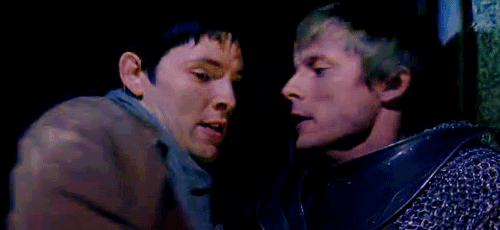


Motiff of Magic

Throughout the history of Abrahamic religions, there has been a connection between magic and (deviant) sexual practices. From the osculum inafme (kissing of donkey’s anuses and kissing the Devil’s anus) to witches who were supposedly inserting hallucinogenous mushrooms into their vaginas. The series association between magic and non heteronormative people becomes pronounced as series progresses.
And therein lies the appeal of the 2008 Merlin TV Series. With this modern retelling it succeeds in addressing certain historical wrongs, make it more representational, address issues and highlight subtext that have been historically ignored in popular media for the time frame it aired.
Arthurian legends no longer becomes the domain of a patriarchal Judeo Abrahamic narrative about a return to the good old days but of class mobility, race, feminism, queer acceptance and the belief of a better world to come in context of the TV Show.
#merthur#bradley james#merlin bbc#arthur pendragon#lgbtqia shows#merlincersei#youtube#gay subtext#queer coding#bbc arwen#angel coulby#colin morgan#Youtube#merlin meta
102 notes
·
View notes
Text
Meet My MCs
This will be under the cut. Those with NA means that I won't be playing them, and others which books I have played but have no record of the MC's name. Some books have two different OCs who coexist due to romancing a different LI
Idea credit to @aria-ashryver
I will be updating it as I play more books
Across the Void MC- Ellectrum Ellara
Romance: Titania
FC: Katherine McNamara

All of Us: Her Story MC: Irena Collins
Romance- Theresa 'Tess'
FC- Megan Suri
All of Us: His Story MC: Lawrence 'Teddy' Heart
Romance: Brandon 'Brad'
FC- Álvaro Rico
Along Came Treble MC- TBD
Romance- TBD
FC: TBD
Alpha MC- Arianwyn
Romance: F!Channing Lowe
FC: TBD
America's Most Elegible MC- Selene Marquez
Romance: Bianca Sandoval
FC: TBD
A Very Scandalous Proposal MC- Felicia Hunstdown
Romance: Ava Montjoy
FC: TBD
Baby Bump MC- Monsterrat Bruch
Romance: Myra Dixon
FC: TBD
Bachelorette Party MC- Phoebe
Romance: Aisha Bhatt
FC: TBD
Big Sky Country MC- ????
Romance: Juliette
FC: TBD
The Baby's Billionaire MC- Not played
Romance: Not played
FC: NA
Bitten MC- Layla Hernández
Romance- Skyler & Alexandra
FC- TBD
Blades of Light and Shadow MC: Brienne Nagoni (f!orc!mc)
Romance: Nia Ellarious and Tyril Starfury
FC: None
Bloodbound: Cristina
Romance: Kamilah Sayeed
FC: Hunter Schaffer
Crimes of Passion MC- Neera Rose
Romance: f!brown!Trystan Thorne
FC: Melissa Barrera
The Crown and the Flame MC- Kenna Rys and Dominic Hunter
Romance: Annelyse Adair (K) and Rose Blake (D)
FC: Adelaide Kane and Bradley James

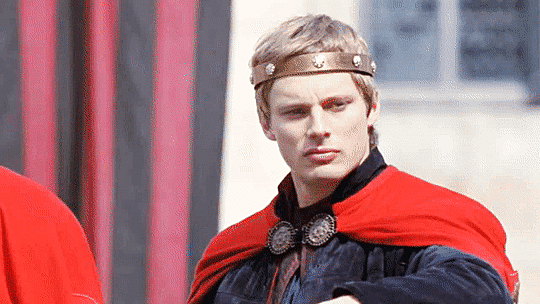
A Courtesan of Rome MCs- Aphrodite and Lavinia of the Cautani
Romance: Sabina (A) and Marc Antony (L)
FC- Kerry Condon (A) and Hanna Mangen Lawrence (L)


The Cursed Heart MC- Nymeria
Romance: f!brown!Kieran
FC: TBD
The Deadliest Game MC- Kayla Marquez
Romance: Farah Sabri
FC: TBD
Desire and Decorum MC- Celestine Walker
Romance: Ernest Sinclaire
FC: Vittoria Puccini
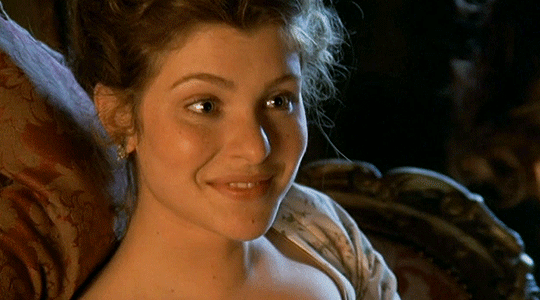
Dirty Little Secrets MC- Blair Gray
Romance: f!white!Charlotte King
FC: TBD
Distant Shores MC- Joan Beauchamp
Romance: Charlotte 'Charlie' Smith
FC: Kristen Stewart

The Duchess Affair MC- Wren Bedford
Romance: f!brown!Nat Pippin
FC: Arsema Thomas
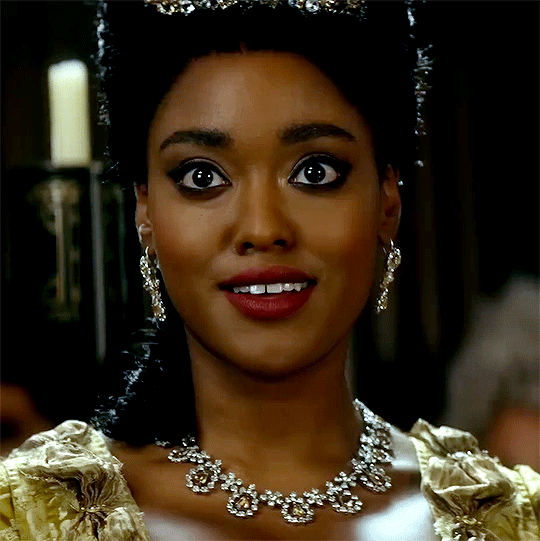
The Elementalists MC- Ariadna Williams
Romance: Shreya Mistry and Aster D'Yew
FC: Lily Collins
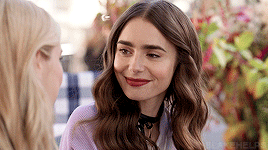
Endless Summer MC- Taylor
Romance: Quinn Kelly
FC: Madelyn Cline

Filthy Rich MC- TBD
Romance- TBD
FC- TBD
First Comes Love MC- Not played
Romance: TBD
FC: TBD
Foreign Affairs MC- Elisabeth Kennedy
Romance: f!brown! Blaine Hayes (formerly Ayna Seth)
FC: Shay Mitchell
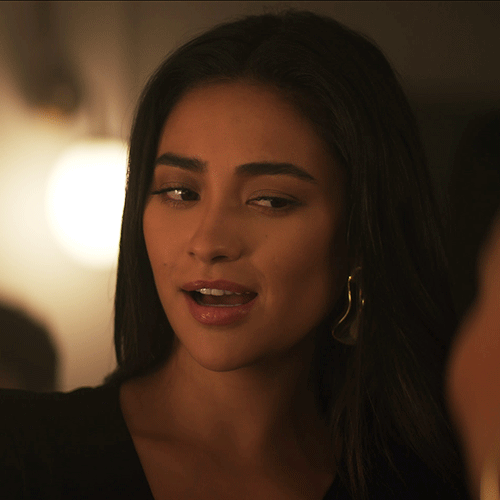
The Freshman/Sophomore/Junior/Senior MC- Vanessa Lewis
Romance: Rebecca Davenport
FC: Margaret Qualley

Getaway Girls MC- Abigail Thompson
Romance: F!White! Jordan Parker
FC: TBD
The Ghost of Us MC- TBD
Romance- TBD
FC- TBD
Guarded MC: NA
Romance: NA
FC: NA
Guinevere MC- Guinevere of Carmelide
Romance: f!white! Artura Pendragon
FC: Beste Kokdemir

The Haunting of Braidwood Manor MC- NA
Romance: Eleanor Waverly
FC: TBD
Hearts on Fire MC- TBD
Romance- TBD
FC- TBD
The Heist: Monaco MC- Elle Jackson
Romance: Sonia Alves
FC: Abelle Sinclair
Hero MC- ?????
Romance: Eva/Minuet
FC: TBD
High School Story Prime- Gala Moschen
Romance: Julian Castillo
FC: Linda Cardellini

High School Story MC- Elisa Connor
Romance: Emma Hawkins
FC: Talia Ryder

High School Story: Class Act MC- Halley Buchaneer
Romance: Skye Crandall
FC: Hanna van der Westhuysen

Home for the Holidays MC: Not played
Romance: TBD
FC: TBD
Hot Couture MC- Therese Ward
Romance: Hazel Ngyuen
FC: TBD
Hot Shot MC: Mina Tremaine
Romance: f!black!Casey Jameson
FC: TBD
Immortal Desires MC- Penelope 'Penny' Winthrope
Romance: Cassie Harlow and Gabriela Adalhard
FC: Anya Taylor Joy
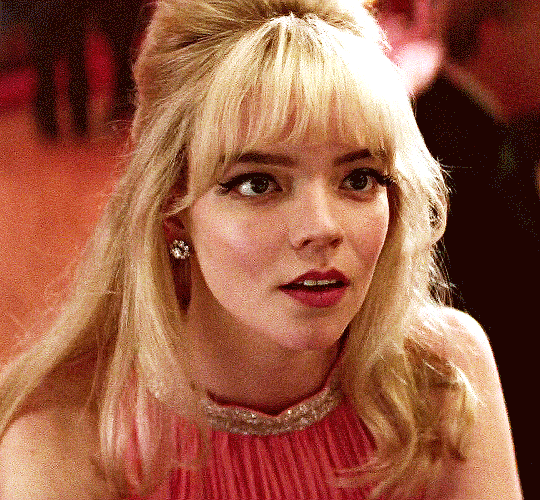
Knock Knock MC- TBD
Romance- TBD
FC- TBD
It Lives Anthology
It Lives in the Woods MC- Tallulah Dawkins & Yun Faye
Romance: Stacy Green (T) and Lucas Thomas (F)
FC: Sophie Thatcher (T) and Havana Rose Liu (F)

It Lives Beneath MC- Rose Vance
Romance: Danni Asturias
FC: Emily Rudd

It Lives Within MC- Corvina Blackwood
Romance: Amalia de León
FC: Nicola Coughlan

Kindred MC- Amaryllis Woodstock
Romance: Marion and Fang Ziyi (aka Rainier and Kaine)
FC: Suki Waterhouse
Kiss of Death MC- Lana Roschelle
Romance: Victoria Flint, Faith Skelly (ex-girlfriend)
FC: TBD
Laws of Attraction MC- Ruth Ocasio
Romance: Lina Reyes
FC: TBD
LoveHacks MC- NA
Romance: TBD
FC: TBD
Make That Date! MC- NA
Romance- NA
FC- NA
Most Wanted MCs- Samantha Massey and Dave Reyes
Romance: Each other
FC: TBD
Mother of the Year MC- Alicia Day
Romance: Eiko Matsunaga
FC: Sofía Vergara
Ms. Match MC- Not played
Romance: TBD
FC: TBD
Murder at Homecoming MC- Valentine Aileen Stone
Romance: Stevie Sun
FC: TBD
My Two First Loves MC- Sandra González
Romance: Ava
FC: TBD
The Nanny Affair MC- Will never play, ew
Romance: Double ew
FC: NA
Nightbound MC- Nathalie
Romance: Vera Reinmonenq
FC: TBD
Open Heart MC- Jordyn Heart
Romance: Aurora Emery
FC: Hayal Koseoglu

Terrorfest MC- Charlie Mendez
Romance- Lucky Alvarez
FC- TBD
Passport to Romance MC- Thalia
Romance: Marisa Pires
FC: TBD
The Phantom Agent MC- Alys Jackson
Romance: F!Indian!Samara Grey
FC: TBD
Platinum MC- Crystal Rosales
Romance: Avery Wilshere
FC: Lucy Boynton
Plus One MC- TBD
Romance- TBD
FC- TBD
The Princess Swap MC- Gabrielle Hastings and Cassandra Julivert
Romance: f!white! Princess Clarke (G) and f!black! Devin Wright (C)
FC: Meagan Rath
Queen B MC- Reina Hughes
Romance: Zoey Wade
FC: TBD
Red Carpet Diaries MC- Kiara Clark
Romance: Victoria Fontaine
FC: Kang Kyung Min
Ride or Die: A Bad Boy Romance MC- Cheryl Addams
Romance: Mona
FC: Bridget Satterlee

Rising Tides MC- Not played
Romance: TBD
FC: TBD
Roommates With Benefit- Nina Berauregard
Romance: F!Drew Young
FC: TBD
Rivals With Benefits MC- TBD
Romance- TBD
FC- TBD
The Royal Masquerade MC- Lady Grace Everhart and Queen Olive Aster
Romance: f!hispanic!Kayden Vescovi and Fabian Rys (husband) (O) and f!white!Hunter Fierro (G)
FC: Freida Pinto (O) Emmanuelle Chriqui (G)

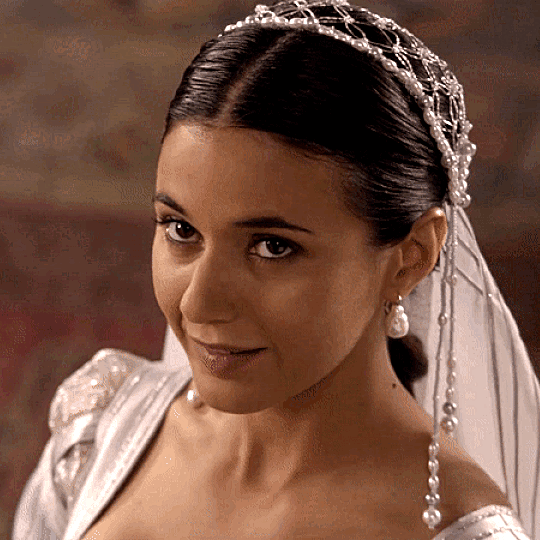
The Royal Romance MC- Eclipsa Ice and Primrose St. Claire
Romance: Lady Hana Lee (E) King Liam Rys (P)
FC: Jessica Alba (E) Ellie Bamber (P)

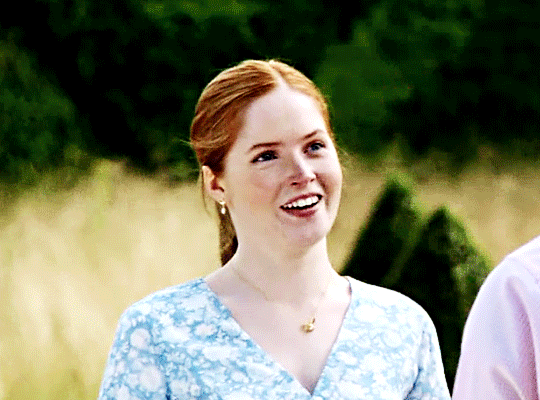
Rules of Engagement MC- Louise Han
Romance: Prince Leo Rys
FC: Kristin Kreuk

Save the Date MC- Chloe James
Romance: Lindsay
FC: TBD
The Shadow MC- TBD
Romance - TBD
FC- TBD
Ship of Dreams MC- Helene Foredale
Romance: f!white!Theodora Carter
FC: Jessica Brown Findlay

Shipwrecked MC- NA
Romance: TBD
FC: TBD
Slow Burn MC- Not played
Romance: TBD
FC: TBD
Sunkissed MC-NA
Romance: Eliana
FC: NA
Surrender MC- EWWWWWW
Romance: EEEEEEEEEWWWWWWW
FC: No.
The Unexpected Heiress MC- Claire Hayes
Romance: Dowager Duchess Gemma Montjoy
FC: Kate Winslet

Untameable MC- TBD
Romance: TBD
FC: TBD
Unbrindled MC- TBD
Romance: TBD
FC: TBD
Veil of Secrets MC- May Sorel Arrieta
Romance: Kate O'Malley
FC: Dilara Aksuyek

Villainous Valentine MCs- Not available
Romance- NA
FC- NA
Wake the Dead MC- Kerina Fyreheart
Romance: Shannon Fox
FC: Lindsay Morgen
With Every Heartbeat MC- Elsie Clarence
Romance: f!hispanic!Dakota Winchester and Lennox
FC: Madison Beer
Witness: A Bodyguard Romance MC- Ugh
Romance: Uuuuuuuuugh
FC: Uhh pass
Wolf Bride MC- Triple ew
Romance: Quadruple ew
FC: HARD PASS
Years Apart MC- TBD
Romance- TBD
FC- TBD
28 notes
·
View notes
Text
mordred through time (movies, tv shows, opera and musicals)
Part 4: From 2014 to 2017
Other Parts: Part 1: From 1949 to 1981 -> here Part 2: From 1982 to 2002 -> here Part 3: From 2002 to 2010 -> here Part 5: From 2018 to 2023
For this part I just wanted to talk a bit about sympathetic Mordred.
Through time we started to see a more sympathetic Mordred. I think the first iteration in audio/movies/tv was the the Blind Guardian's song in 1995. For the first time we have Mordred as a protagonist, mainly lamenting of regret, pain and lonliness. While I do not know why they decided to focus on Mordred, it is also notable that writing a more sympathetic Mordred was already happening in novels, around the same time. I used the arthurian list of novels I made so I might have missed any, but at this time we have 1956 "The Great Captains" by Henry Treece, "Sword at Sunset" by Sutcliff, "The Wicked Day" (the first novel focusing on Mordred as protagonist) by Mary Stewart, 1982 "The Idylls of the Queen" (Phyllis Ann Karr), 1983 "The Mists of Avalon" (Marion Zimmer Bradley), Persia Wolley's 1987 Guinevere trilogy, 1988 "The road to Avalon" by Joan Wolf and 1988 "The Book of Mordred" by Hanratty all depicting Mordred as a more round character, as someone the reader can feel sympathy too or even enjoy or relate to.
A slighty sympathetic but still villanous potrayal can then be found in 2001 ("The Mists of Avalon" miniseries) but we have to wait till 2008 ("Merlin", BBC) to have a tv Mordred who is actually shown trying to do the right thing (at least for a bit), and working with Arthur. I think this is more due to the fact that "Merlin" often tries to depict villains' origins and motivations than a real conscious attempt to redeem Mordred or make him less villanous.
Other following examples are the kid movie 2010 "Merlin and Arthur the Lion King" and the album 2014 "High Noon Over Camelot" that positions Mordred in a co-protagonist role and fully allows the listeners to empathyze with him. The Fate franchise (the introduction of Mordred should be around 2012 in the novels) continues on this trajectory, making Mordred a main sympathetic and beloved protagonist in many of the adaptations.
2014 High Noon Over Camelot album by The Mechanisms: The song I used is "Peacemaker". The album has multiple arthurian characters sung by different artists, and Mordred is interpreted by Ashes O'Reilly. This is also the first time we have an explicitly queer Mordred (outside of novels), as Mordred is a trans man in this retelling. The story is a Western reimagining of arthuriana, and another case of a sympathetic Mordred - this time Mordred is more overtly sympathetic and even reconcile with his father Arthur at the end.
2011 recording of Albeniz's "Merlin": Piotr Prochera plays Mordred. This is another recording (no dvd, this has been shared by Piotr Prochera acor himself on youtube) of the "Merlin" opera.
2015 recording of "Le Roi Arthus": This opera is probably my favorite arthurian opera. It was created by Ernest Chausson between 1886 and 1895 and it is sung in French. Mordred is a bass and a classic villain, here jealous of Lancelot and the attention Guinevere gives Lancelot. This 2015 version was a modernized edition, with the knights depicted as modern soldiers. Mordred here is played by Alexandre Duhamel.
2016 Rex, youtube webseries: This series is on Severe Chill Studios' Youtube channel, with 48 short episodes. The series is a vlog of arthurian characters living in modern times (no reincarnations, just reimaginings). It follows Rex (Arthur) a student who is dealing with his abusive family and the brothers Merlin and Lancelot. Moore (Mordred) is Arthur's spoiled and arrogant friend (played by Daniel O’Sullivan). He lets Rex crash at his place for a bit, and is often depicted insulting his mother and calling her slurs. If you decide to watch this just know the series has some pretty heavy themes (a part from domestic abuse it also touches on terminal illness). Youtube link.
2017 Fate/Apocrypha: This is one of the many anime adaptation of the Fate franchise. Mordred is voiced by Miyuki Sawashiro. The Fate franchise is massive and deals with numerous spin-offs or even alternative realities to tell the tales of wars/battles for the Holy Grail mainly fought by Servants who are personification of historical/legendary figures. Fate/Apocrypha is based on a series of novel and is an alternative timeline to the previous Fate/Stay Night anime and also the first time we have Mordred in the anime. Mordred is here a Servant, they are the cloned-son of Saber (Arthur/Arturia, who is a woman) and Morgana. Their story is massive so let me just say I am using they/them for Mordred because the Fate series is very ambigous regarding theri gender. They are born as the close of a woman (Saber) and often referred with female pronouns through the series, they hate being called "a girl", and also hate being called "a boy". While I do not think the series was making an effort to actually depict a non-binary character, I do believe Mordred can easily be read as one.
2017 King Arthur and the Knights of the Round Table: 2017 was a wild year for arthuriana but nothing was as wild as this movie. The movie follows the life of some arthurian characters' descendant living in Thailand. Morgana and Mordred (banished in arthurian times) ended up in space, working with aliens, and are now back to destroy the descendants. The movie is full over dramatic close up, Morgana turning into a mecha, fighting scenes and more. Interestingly, given how ridiculous the movie is, Mordred is depicted as a sympathetic (almost) villain. He is played by Russell Geoffrey Banks.
2017 King Arthur: Excalibur Rising: The scene I used in the video is right at the start, as the movie is set after Arthur's death. While Mordred might seem sympathetic there he is actually a pretty violent villain for the rest of the movie. The story is focused on Owain (Arthur's illegitimate son) trying to take back the crown from Mordred and Morgana. Here Mordred (played by Gavin Swift) is Arthur's incestuous son with Morgana.
2017 Legend, youtube webseries: A webseries you can watch on Tufts University Television's channel (link here). The series has 7 episodes and an epilogue and is set in a university. Each student is an arthurian character, with Mordred (Morty) as the overly joking, friendly guy who is hiding some deep hatred and jealousy towards Arthur. Unfortunately I do not remember if Mordred is Arthur's half-brother or just a friend. Mordred is played by Yuval Ben-Hayun. The story and production were pretty good, so I recommend it!
2017 Mordred La Revolte: I cheated a bit as this movie is the end of a long webseries. The series started in 2013 and run till 2018 with two season and can still be found here on youtube. The series was created by Tommy-Lee Baïk (who also played Mordred) and is in French. Unfortunately I cannot really tell how arthurian the series is, but the plot does not mention other arthurian characters. If I am not wrong, la Revolte is simply S2 turned into a movie.
2017 Fate/Grand Order The stage - Divine Realm of the Round Table: Camelot: Part of the Fate saga but in the Grand Order timeline, this is a stage adaptation of one of the events in the videogame Fate/Grand Order. In particular, it should be the same story shown in the later movie Camelot part 1 as the full title is Fate/Grand Order THE STAGE - Divine Realm of the Round Table: Camelot Replica; Agateram. I will explain more about it in the next part of this Mordred series. Chihiro Kai plays Mordred.
#mordred#mordred through time#fate grand order#camelot#king arthur#high noon over camelot#characters through time#merlin#merlin opera#webseries#mordred la revolte#french mordred#fate grand order movie#fate series#excalibur rising#rex#le roi arthus#opera#info#fate apocrypha#saber#Mordred through time
32 notes
·
View notes
Text
Showdown 2k24 Nominations!
alright, redoing this post now that I can give a concrete start date of Monday the 15th of January!
Nominations for the tournament are open up until the start date, and you can submit anyone who could reasonable be considered a companion, either by sending me an ask or by filling out
this form.
If you make your nomination via the form you can also submit some propaganda to go alongside the poll. Anyone who was considered a regular at any point in the last year will automatically be included, as well as anyone who was in the original tournament (+/- a couple I might miss or misremember as being a regular because I don't have old lists anywhere). The exception to this is last years winner, Rose Tyler, she will not be getting a place in the main tournament, however after the final I will run a poll to see if our new winner can beat her. (oh and also maybe I'll leave the TARDIS out but not fully decided yet)
The tournament is going to be run in the same way I did @adventure-showdown, meaning I'll keep companions from different periods of the show and different mediums segregated at first so the nicher ones don't immediately get knocked out, and slowly get mingled together. The exact details are going to depend on just how may characters get included.
Errm yeah, so go wild, nominate whoever you like (as long as they are a companion). If they are from teh TV show they have to be on this list to qualify, and for EU companions I'm going with them needing a TARDIS wiki page, and also I will give them a quick proof read to make sure they pass, the bar is low but it is there
if you want to submit an alternate version of the character sorry but main version only unless you can give a really good reason, eg regenerations of a time lord
also, if they are primarily from another franchise that'll be a no
The full list of contestents is under the cut and will be updated as nominations come in. Its sorted by medium and then to be alphabetical by first name. if an eu companion exists in multiple mediums i just sort of picked one or I put them under the other category, people who exist in real life are also sorted into their own category. There are some characters under Classic Who/NuWho who were not companions on TV but were in the EU. Companions who's names are in green have had propaganda submitted for them, if they're not in green then they don't, and just because someone has propaganda doesn't mean i wont accept more
Classic Who
Ace McShane
Adric
Barbara Wright
Ben Jackson
The Brigadier
Chang Lee
Dodo Chaplet
Grace Holloway
Harry Sullivan
Ian Chesterton
Jamie McCrimmon
Jo Grant
K9
Kamelion
Katarina
Leela
Liz Shaw
Mags
Mel Bush
Mike Yates
Nyssa
Peri Brown
Polly Wright
Romana I
Romana II
Sabalom Glitz
Sara Kingdom
Sarah-Jane Smith
Sergeant Benton
Steven Taylor
Susan Foreman
Tegan Jovanka
Turlough
Vicki Pallister
Victoria Waterfield
Zoe Heriot
NuWho
Adam Mitchell
Amy Pond
Bill Potts
Canton Everett Delaware III
Clara Oswald
Dan Lewis
Donna Noble
Graham O'Brien
Grant Gordon aka the Ghost
Handles
Inston-Vee Vindor
Jack Harkness
Karvanista
Kate Stewart
Martha Jones
Mickey Smith
Missy
Nardole
River Song
Rory Williams
Rose Noble
Ruby Sunday
Ryan Sinclair
Wilfred Mott
Yasmin Khan
Audio
Alex Campbell
Anya Kingdom
Bliss
C'rizz
Cass Fermazzi
Charley Pollard
Cousin Eliza: Christine Summerfield: Horus
Dalek Test Subject 2
Erimem
Evelyn Smythe
Helen Sinclair
Hex Schofield
Iris Wildthyme
Liv Chenka
Lucie Miller
Mark Seven
Molly O'Sullivan
Narvin
Oliver Harper
Sheena (The Starship of Theseus)
Tania Bell
Novels
Anji Kapoor
Anna (Good Companions)
Badger
Barusa
Bernice Summerfield
Business woman (Time on a Vine)
Catherine “Cat” Broome
Chris Cwej - have propaganda but in conjunction with another contestant
Cinder
Claudia Marwood
Compassion
Dorothy (The Wonderful Doctor of Oz)
Fitz Kreiner
Guinevere Winchester
Hector (All Flesh is Grass)
Homunculette
Ikalla
Irving Braxiatel
Jack McSpringheel
Larna
Marie (Alien Bodies)
Milena
Patience
Penelope Gate
Peter Summerfield
Rosie Taylor
Roz Forrester - have propaganda but in conjunction with another contestant
Ruth Leonidas
Sam Jones
Serena
Sibling Different aka Mae
The Mortimer Family (Ida, Alan, Helen, George)
Trix MacMillan
V.M.McCrimmion
Wolsey the Cat
Zeleekhà
Comics
Abslom Daak, Dalek Killer
Angus ‘Gus’ Goodman
ARC
Chantir
Child Master (The Then and the Now)
Cindy Wu
Dave Lester
Destrii
Duh
Flanx
Fey Truscott-Sade
Frobisher
Gabby Gonzalez
Gillian & John Who
Grayla
Hattie Munroe
Izzy Sinclair
Jayne Kadett
John Jones
Josie Day
Kroton
Ly Chee the Wise
Majenta Pryce
Maxwell Edison
Olla
Rose-the-cat
Shayde
Ssard
The Squire
Weeping Angel (Origins)
Real Life
Alan Turing
Claudia Winkleman
John Lennon
Jules Verne
Mary Shelley
Peter Cushing
Other
Alison Cheney
Andy Davidson
Antimony (Death Comes to Time)
Brian the Ood
Dormouse (The Red and the Blue)
Emma (curse of fatal death)
Koschie
Romana (Battle for the Universe)
Splinx
Susan Who
Tom Campbell
34 notes
·
View notes